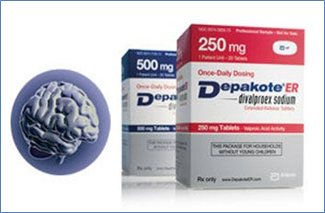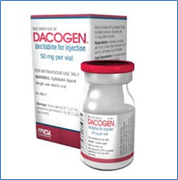2. European Legislation – Directive 2001/83
1. European Legislation – Directive 2001/83
1.4. Effective measures to monitor
Article 97
This article details the measures that member states should take in order to effectively control the advertising in their jurisdiction. Member states shall ensure that adequate and effective methods to monitor advertising and to prohibit the diffusion of misleading advertising exist.
This should include legal provisions under which persons or organisations may take legal action against any advertisement inconsistent with this Title (meaning Title VIII), or bring such advertisement before an administrative authority competent either to decide on complaints or to initiate appropriate legal proceedings.
However, none of the measures shall exclude the voluntary control of advertising of medicinal products by self-regulatory bodies and recourse to such bodies, if proceedings before such bodies are possible in addition to the judicial or administrative proceedings referred to.
Article 98
This addresses the marketing authorisation holder, who:
• shall establish, a scientific service in charge of information about the medicinal products which he places on the market.
• keep available for, or communicate to, the respective authorities, a sample of all advertisements together with a statement indicating the persons to whom it is addressed, the method of and the date of first dissemination,
• ensure that advertising of medicinal products conforms to the requirements of this Title,
• verify that medical sales representatives have been adequately trained and fulfil the obligations imposed upon them by Article 93,
• ensure that the decisions taken by the authorities are immediately and fully complied with.
In addition, this article states that Member States shall not prohibit the promotion of a medicinal product by the holder of the marketing authorisation and one or more companies nominated by him, also called ‘co-promotion’.
Article 99
The main provision here is that Member
States shall determine in particular what penalties shall be imposed should national
provisions (based on the directive) be infringed.
Sanctions for breach of national legal provisions on advertising vary from removal of misleading advertisement, publication of corrective statements, to fines or imprisonment of responsible individuals under a criminal law framework, to administrative fines in certain jurisdictions. Sanctions may escalate if the breach of the advertising provisions is linked to an illegal inducement of a healthcare professional (HCP) and the matter falls within the remit of the national anti-bribery law or there has been a breach of the antitrust rules.
Under the self-regulatory systems, sanctions for breach of national self-regulatory codes include fines, publication of cases, issuance of corrective notices to HCPs, audits and ultimately suspension or cancellation of the company’s membership to the relevant national industry association and potentially of corresponding European industry associations, such as the EFPIA.
[Considering Articles 97 and 99, an approach that can best be described as “delegated” self-regulation is deployed in several instances. As such, it can be considered an example of a co-regulatory scheme involving industry and national medicines regulatory authorities:
To ensure that medicines promotion complies with EU and national law, governments in a number of European Union (EU) countries ‘’delegate’’ some of their responsibilities regarding the control of promotional activities to pharmaceutical industry associations under the industry’s self-regulation system and its codes of practice. Such an arrangement differs from the US —and some European countries, e.g., France—where the respective regulatory authorities (the Food and Drug Administration (FDA) [1] [2] in the US and The National Agency for the Safety of Medicines and Health Products (ANSM) in France [3] ) directly govern promotion.
The following Table (Table 1) gives a brief, abbreviated description of the self-regulation system in two select EU countries, including examples of violations ruled in breach of code for a serious offence (Table 2), adapted from a publication by Zetterqvist et al. (2015)[4] .
Table 1: Constitution and procedures (abbreviated) of self-regulation in the UK and Sweden
|
UK 2125/5/08 Actos (pioglitazone) indicated as an adjunct to diet and exercise to improve glycemic control in adults with type 2 diabetes mellitus; Takeda |
UK 2234/5/09 Victoza (liraglutide) indicated for patients with an initial body mass index (BMI) of 30 kg/m2 or more or with a BMI of 27 kg/m2 or more in the presence of at least 1 weight-related comorbid condition (e.g., hypertension, dyslipidemia, type 2 diabetes); Novo Nordisk |
SWE W647/04; W648/04 Glucobay (acarbose) indicated to treat adults with type 2 diabetes who are unable to achieve sufficient glycemic control by diet, exercise and weight loss alone; Bayer |
|
Misleading
claim; |
Pre-licensing
promotion (n=4); |
Off-label promotion |
|
Advertisement claimed: “There are no long-term cardiovascular concerns regarding the use of Actos”. Failed to mention that the drug might exacerbate and precipitate heart failure and was contraindicated in patients with, or with a history of, heart failure. |
Four §2 rulings regarding pre-licensing promotion: on website; via sponsored meetings disguised as scientific and medical meetings; via paid-for insert in medical journal disguised as independent supplement; at diabetes meeting by professor who failed to disclose financial relationship with company. |
The claim in mailing and advertisements that Glucobay had “cardioprotective effect” in patients with impaired glucose tolerance (IGT) and Type 2 Diabetes constituted off-label promotion since the drug was approved neither for patients with IGT nor for any cardioprotective use. |
Table 2: Three examples of violations ruled in breach of code for a serious offence by self-regulation systems in the UK and Sweden
To complement these examples of the delegated self-regulation system, two examples from the US are shown in the following:
From the FORBES list of “Ten Misleading Drug Ads 2010” [5]

In January 2009 the FDA admonished Abbott Laboratories for distributing pharmacy flashcards that promoted Depakote ER for bipolar disorder without prominently discussing its numerous side effects. The drug's risks include potentially fatal liver damage, pancreatitis and brain and spinal cord birth defects. The flashcard also implied that Depakote ER can be used to treat mania not associated with bipolar disorder; it hasn't been approved for such use.
Dacogen

Eisai's Dacogen is used to treat certain rare blood cell disorders and blood cancers. In a patient brochure distributed by salespeople to doctors and nurses, Eisai claimed 38% of study patients had a positive response to the drug. This is false, the FDA said in a November 2009 warning letter. In fact, that figure was taken from a small subgroup of patients who responded well to the drug. Including all the patients in the study, the response rate was a mere 20%.
[1] FDA: Prescription
Drug Advertising | Questions and Answers
https://www.fda.gov/drugs/prescription-drug-advertising/prescription-drug-advertising-questions-and-answers#top
[2] FDA: Advertising
and Promotion Guidances
https://www.fda.gov/animal-veterinary/guidance-industry/advertising-and-promotion-guidances
[3] Code de la santé publique (French Public Health Code (FPHC)), Article L5122-8
[4] Zetterqvist AV,
Merlo J, Mulinari S (2015) Complaints, Complainants, and Rulings Regarding Drug
Promotion in the United Kingdom and Sweden 2004–2012: A Quantitative and Qualitative
Study of Pharmaceutical Industry Self-Regulation. PLoS Med 12(2): e1001785.
doi:10.1371/journal.pmed.1001785
https://europepmc.org/backend/ptpmcrender.fcgi?accid=PMC4331559&blobtype=pdf
[5]https://www.forbes.com/2010/02/02/drug-advertising-lipitor-lifestyle-health-pharmaceuticals-safety_slide.html